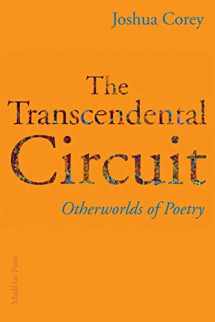
The Transcendental Circuit: Otherwolds of Poetry
Book details
Summary
Description
From the “golden age of poetry blogging” to the debased age of Trump, this collection of essays and meditations by the poet, critic and novelist Joshua Corey explores contemporary poetry from its margins: the pastoral, the fictional, and the mystical. A noted critic and theorist of the importance and persistence of the pastoral in current writing, Corey argues for the centrality of poets like Lisa Robertson, Francis Ponge and Robert Duncan to an emerging post-pastoral tradition that confronts the eroded boundaries between nature and culture in the time of the Anthropocene.
The hinge and heart of the book is a selection from the author’s correspondence with the late Reginald Shepherd, in which the two poets challenge each other to think more rigorously and generously about the emerging field of twenty-first-century American poetry. Other essays consider the poet’s role in a time when the public and private have seemingly exchanged places; the title essay constitutes a defense of poetry but also a critique of the dangerous desire to transcend particulars of historical and embodied existence. Corey writes engagingly about the peculiar genre of “the poet’s novel” and his own attempts to work in that form, while the last essays—meditations on materialism, postmodernism, and ethics—blur the boundaries between criticism, theory, and poetry itself.


We would LOVE it if you could help us and other readers by reviewing the book
Book review



